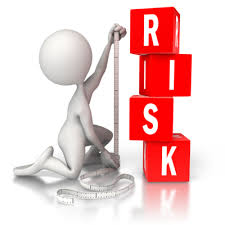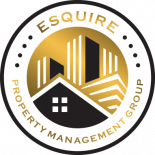After performing a comprehensive and exhaustive analysis and identifying realty as your next investment, one of the most important tasks real property investors can do before pursuing an investment strategy is to determine the risks associated with it. It’s virtually impossible to completely avoid risks so the more you can understand about your investment by conducting due diligence, the more you learn about your risk strategy and mitigation options, the better your chances will be of making a successful and profitable investment. Doing homework, asking many questions, and performing comprehensive investigations are just some of the things that needs to be done before you pull the trigger. Just winging it is not a strategy.
 Every Deal is Different
Every Deal is Different
Of course, every investment deal is different, but if you do everything you can to become fully aware of the potential risks associated with the specific investment, you’ll be able to develop a mitigation strategy to ensure your investment is as profitable as possible. Importantly, a real property investor should consider seeking advice from a competent-seasoned property management team to provide an additional avenue of knowledge. This last step would include a rental/leasing survey, an assessment of the physical condition of the property and expected useful life of the large ticket building components.
 Most Common Real Estate Investment Risks
Most Common Real Estate Investment Risks
There are generally five main real estate investment risks all real property investors face:
Renovation/Remodel Time Frame
- It is difficult to precisely predict and control the time frame for completing renovations on an investment property. External circumstances like the weather or scheduling issues with the contractor and sub-contractors can set back your renovation timeline and delay your proforma profits. Consider adding contingency periods for construction projects such that expectations are not dramatically affected should there be delays.
Cost of Renovation/Remodel
- A significant risk with any investment property is not knowing if you’ll come across an unexpected major renovation that is necessary or required by the local authority having jurisdiction. Having the liquid resources to cover unexpected renovations is one way to prepare for this risk to ensure you don’t cut into your profits too much – or minimize your, or your investor’s, expectations.
Appraisal Value
- Appraisal Value: If you’re going to put in any work to an investment property, you want the property to appreciate as a result. Knowing what the expected appraisal value is before and after any renovations can help you estimate profits and risk. An experienced property manager can help with this task.
How Long Will it Take to Rent
- Investment property risk managers want to rent out their property as soon as possible to begin the cash flow process. However, delays can happen for various reasons so build in some flexibility into your strategy – knowing what the average vacancy rates for the type/character of property is important to contemplate and calculate during the risk assessment phase.
Cost to Lease/Rent
- A cost analysis is a critical part of any investment strategy. Consider your risk of renting out the property versus selling it to generate the most profits. Continue to always assess this cost analysis as your asset matures, and as the market matures for your investment.
Of course, these aren’t the only risks associated with any given investment strategy, but they are most commonly associated with every realty investment in some capacity.

Mitigating Risks is Critical at the Outset
It’s difficult to tell whether your real estate investment strategy is creating too much risk or just the right amount. Working with a Esquire Property Management team can help you mitigate risks as much as possible, especially when unknown risks are involved. Utilizing the resources available to you is one of the best decisions you can make in both the short-term and long-term when it comes to your real estate investment strategy.
Esquire Property Management Group works with investment risk managers to develop profitable strategies to maximize profits and mitigate risks as much as possible. One of the biggest mistakes an investor can make is developing a strategy on their own. With so many components to look at in every investment, even an experienced investor can benefit from another set of eyes looking at a deal. Maximize your profits and minimize your risks by contacting us today for a consultation. You can also contact David Roberson for a copy of his book he co-authored with his wife Shelly Roberson, “Your Guide to Real Estate Investing” which discusses this topic in more detail.
David currently is the broker/owner of several real estate related businesses which manage and maintain 300+ client properties on the San Francisco Peninsula.
Trust, transparency, and performance guarantees are the foundation of these businesses. David challenges anyone to find a PM professional that offers services similar - extensive education, customer service, and performance guarantees.
David also provides consulting for his clients on property development feasibility, construction, and complex real estate transactions.
David has authored a published law review article, three real estate books, and over 150+ real estate blog articles.
- “Wildfires, Insurance & Mortgages: Will Your Home Survive the Financial Aftermath?” - March 3, 2025
- What’s Driving California’s Commercial Real Estate Shakeup? - February 27, 2025
- Critical Issues in Triple Net Leases Investors Should Know - February 14, 2025





